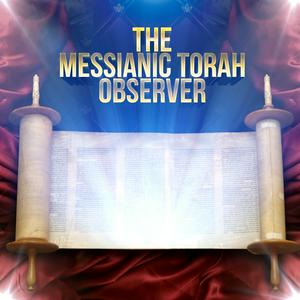In this installment, Rod Thomas explores the Jewish concepts of the Messiah, focusing on the three-messiah framework: Mashiyach Nagid, Mashiyach ben Yosef, and Mashiyach ben David. The discussion delves into Daniel's prophecy, Jewish tradition, and the identity of Yeshua (Jesus) as understood in Messianic faith. The episode also examines why mainstream Judaism rejects Yeshua as Messiah and how these messianic expectations shape both Jewish and Messianic perspectives.
Key Topics Covered
1. Introduction and Context
Greetings and setting: Recorded on the 3rd Day of the 11th biblical month, 6025 (Friday, January 16, 2026).
Reflection on persecution, faith, and the hope found in Yeshua's teachings (Matthew 5:10-12; Ephesians 6:18; Matthew 5:44; Luke 6:28).
2. Why Judaism Rejects Yeshua as Messiah
Historical grievances and theological differences.
The role of Rabbinic expectations and interpretations in shaping Jewish messianic beliefs (Hebrews 2:3; Romans 3:2; Romans 11:25-26; Zechariah 12:10).
3. The Three Messiahs in Jewish Thought
Mashiyach Nagid (Messiah the Prince)
Mashiyach ben Yosef (Messiah, son of Joseph)
Mashiyach ben David (Messiah, son of David)
The episode focuses on Mashiyach Nagid, with future installments to cover the other two.
4. What is Mashiyach Nagid?
Linguistic breakdown: "Mashiyach" means "Anointed One"; "Nagid" means "Prince" or "Leader."
Scriptural foundation: Daniel 9:25-26 and its interpretations.
The prophecy's implications for Jewish and Christian eschatology (1 Corinthians 13:12; Matthew 24:15-16).
5. The Meaning and Role of "Nagid"
"Nagid" as prince, ruler, leader, commander, or official.
Biblical examples: Saul, David, Solomon, Hezekiah, Abner, Azariah, and others (1 Samuel 9:16; 10:1; 13:14; 25:30; 2 Samuel 5:2; 6:21; 7:8; 1 Kings 1:35; 2 Kings 18:1; 2 Chronicles 31:13).
6. Mashiyach Nagid in Prophecy and Tradition
The "transitional" leader concept: Anointed but not yet king.
Comparison with "Melech" (King) and the Davidic Covenant (2 Samuel 7:8-16; Psalm 2:8-12; 2 Chronicles 13:5).
7. Messianic Traits and the Melchizedekian Order
Psalm 110 as a foundational text for the dual role of king and priest.
The Melchizedekian priesthood and its fulfillment in Yeshua (1 Peter 2:9; Daniel 2:44; Matthew 21:44; 1 Corinthians 15:24; Revelation 11:15).
8. Jewish Perspectives on Mashiyach Nagid
Views of Rashi, Ibn Ezra, and Rambam (Maimonides) on the identity and role of Mashiyach Nagid.
The Essenes and Qumran writings: Priestly and royal messiahs, "Prince of the Congregation" (Damascus Document, Rule of the Congregation, 11QMelchizedek).
Apocryphal and Talmudic references: Suffering and kingly messiahs (1 Enoch, Jubilees, Talmud).
9. Christian and Messianic Interpretations
Yeshua as the fulfillment of Daniel's prophecy and the persona of Mashiyach Nagid.
The dual or double-fulfillment view of prophecy.
Jewish objections to identifying Yeshua as all three messianic figures.
10. Application and Call to Discipleship
The call for believers to imitate Yeshua's character traits: suffering, triumph, priesthood, kingship, exaltation, royal lineage, and spiritual warfare (Isaiah 53; Colossians 2:15; Psalm 110; Matthew 1:1; Zechariah 14:3; 1 Peter 2:9; Revelation 20:6; 2 Corinthians 10:4-6; Ephesians 6:12-14).
Invitation to covenant relationship and Torah-honoring lifestyle (2 Corinthians 6:2; Isaiah 55:6-9).
References & Further Reading
https://www.sefaria.org/topics/mashiach?sort=Relevance&tab=notable-sources
https://jewishlink.news/the-origin-of-the-word-nagid-leader/
https://www.researchgate.net/publication/318725539_A_Contemporary_Defense_of_the_Authenticity_of_Daniel
https://www.gotquestions.org/prophecy-double-dual-fulfillment.html
https://www.chabad.org/library/article_cdo/aid/101747/jewish/Mashiach-ben-Yossef.htm
https://library.biblicalarchaeology.org/sidebar/the-messiah-text-4q521-and-a-line-by-line-analysis/
https://jamestabor.com/a-cosmic-messiah-who-makes-live-the-dead-in-among-the-dead-sea-scrolls-4q521/
https://en.wikipedia.org/wiki/The_War_of_the_Messiah
https://scielo.org.za/scielo.php?script=sci_arttext&pid=S1010-99192014000300016
https://www.sefaria.org/rashi_on_daniel.9.25
https://en.wikipedia.org/wiki/Jesus_in_the_Talmud
https://www.themessianictorahobserver.org/2025/06/20/messianic-reflections-in-the-life-of-yosef-ben-yisrael-thoughts-reflections-on-torah-reading-34/
Contact & Community
For questions or further discussion, email:
[email protected] Leave a voice message via SpeakPipe on https://www.themessianictorahobserver.org/
Closing Blessing
May you be most blessed, fellow saints in training. Walk in faith, truth, and the hope of Messiah's return.


